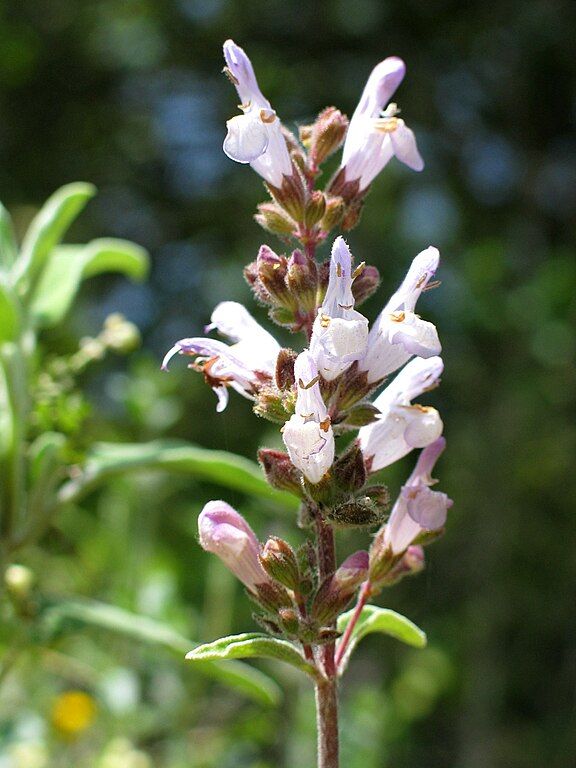The plant Salvia fruticosa or Greek Sage, grows extensively in Greece and is widely found on Lesvos and it has similar properties to Common or Garden Sage (Salvia officinalis) which is also a Mediterranean plant found chiefly in Northwestern Greece, the Western Balkans, Italy, France and Spain. Greek sage can develop woolly galls called “apples” which are caused by a small wasp. The “apples” are edible and are the origin of the common Greek name for the plant, Faskomilo (φασκόμηλο, sage-apple). The tea from the dried plant is very popular and is recommended for a broad range of purposes such as antiperspirant, antiseptic, antipyretic, and for oral hygiene. It is also claimed to aid memory and mental health and to lower cholesterol levels. Like Common Sage, Greek Sage it is also valued for its culinary use. The leaves are a source of an essential oil which has possible insecticidal and antibacterial applications.

The essential oil from Greek Sage is rich in terpenes and terpenoids with at least 50 having been identified. The main component is the terpenoid 1,8-cineole or eucalyptol which has known insecticidal and antibacterial activity. In contrast to Common Sage, Greek Sage oil generally has very low amounts of the terpenoid thujone which has been associated with side effects such as anxiety, sleeplessness, and convulsions, due to its action on the central nervous system. Analysis of other extracts of the plant reveal considerable amounts of secondary metabolites such as phenolics and terpenoids which have anti-inflammatory and antioxidant properties.
